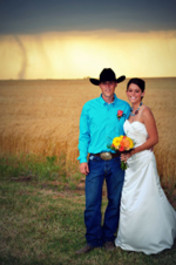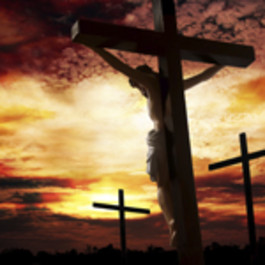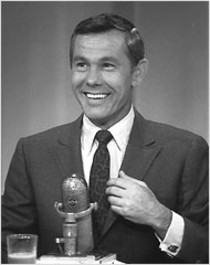That’s what colleges and universities across the land are discovering! Here’s how Justin Pope announced it: “College health officials are finally realizing that healthy sleep habits are a potential miracle drug for much of what ails the famously frazzled modern American college student: anxiety, depression, physical health problems and—more than most students realize—academic troubles. Some studies have found students getting adequate sleep average a full letter grade higher than those who don’t” (South Bend Tribune 9-12-12). Did you catch that? A full letter grade higher! How much sleep will make the difference? Hold on to your seat, because young or old we’re not used to numbers like this. The recommended daily sleep for college students is nine hours a night. Impossible, we all mutter. I know the feeling! Nine hours? Back in the 1960s and ‘70s college students were getting around eight hours of sleep each night. That number dropped to seven hours by the 80’s. And surveys indicate it’s closer to six hours a night these days. We are a sleep-deprived nation, college age or not. But universities are no longer taking these numbers lying down. Campus campaigns, from Hastings College in Nebraska to the University of Louisville, are targeting adolescent biorhythms with campus-wide “flash naps” (an afternoon sleep-in, arranged in advance with public safety so they’ll “know it’s not an epidemic of something”) or beds in the student center from which pajama-clad educators lecture passers-by on the value of even a quick afternoon nap. The truth is sleep loss is more debilitating a practice than we first thought. University of Delaware psychologist Brad Wolgast observes that “many students who think they have attention-deficit (hyperactivity) disorder are often just sleep deprived.” He also notes: “‘When you find depression, even when you find anxiety, when you scratch the surface 80 to 90 percent of the time you find a sleep problem as well.’ . . . (Wolgast is also seeing more students who’ve been prescribed sleeping pills, which he says usually harm sleep patterns more than help”) (ibid). So if you’re having difficulty sleeping these days, why not drop by the campus counseling center. Help is much closer and even simpler than you thought. And what’s not to like about turning some Z’s into A’s? Unless, of course, we’re talking about sleeping through the “last days.” Our now concluding miniseries, “The Dark Night Rises,” is anchored in a single New Testament passage that without apology warns us about sleeping through this climactic chapter in earth history. But Paul is describing a spiritual lethargy and drowsiness, not a physical sleep. “Stay awake and sober” he passionately appeals to his readers (I Thessalonians 5:6, 7). For wide-awake is the divine antidote to a civilization lulled into the “sleeping sickness” of the dark knight. To sleep now is a death trap, Christ Himself cautions (Luke 21:34-36). So “watch and pray.” How? Give an ear to “The Dark Night Rises”—THREE. In the end the good news is that the God who watches over you “neither slumbers nor sleeps” (Psalm 121:4). And when you have Someone who will keep watch with you through the dark night, what’s there to fear, no matter how dark the night becomes?
Pastors' Blog
By Pioneer Pastors

Now that the brouhahas of the two major political parties in this nation are behind us—namely their back-to-back presidential-nominating conventions—allow me this moment of non-partisan reflection. The longer I live and the more presidential campaigns I survive, the deeper grows my conviction that the life of unabashed self-advancement that seems a requisite to politics these days is blatantly antithetical to the radical call of Christ. Let me hasten to clarify that by this conviction, I am not suggesting that there is no place for the fully-devoted follower of Jesus in politics or in the legislative, judicial and executive branches of government. Joseph, Daniel, Esther, and Nehemiah are compelling biblical examples of divinely-placed believers who rose to highly influential positions within their respective governments. William Wilberforce is a shining example from our “modern” annals. God honors those who honor Him in the realm of service to humanity, including political leadership. But given the political climate in this nation—where 24/7 news cycles hyper-magnify every slip of the tongue and wink of the eye ad nauseam, where candidates and their political action committees spend literally billions of dollars in campaign ads eviscerating their opponents, where ethical standards and moral convictions it seems are banished from the arena of political contest by expediency and greed—you have to wonder how long a Peter or a James or a John or a Mary could survive a run for political office, while maintaining a radical devotion to Jesus and the ethics of His Sermon on the Mount. Perhaps the Prisoner was engaging in more than early-morning banter with the hastily awakened procurator—perhaps in that interrogation Jesus was deftly confronting Pilate, himself a political appointee of Rome, with a higher ethic. It certainly is clear that in these words Christ pronounces the steely truth about those who would take up their own crosses and follow Him: “‘My kingdom is not of this world. If My kingdom were of this world, My servants would fight, so that I should not be delivered to the Jews; but now My kingdom is not from here’” (John 18:36). And if His kingdom is not from here, then surely His followers live by a morality and an ethic that does not prevail here either—a morality that allows your opponents to nail you to a cross while you seek their forgiveness and reject personal retaliation, an ethic that leads you to turn the other cheek, to pray for those who “despitefully use” you, to love your enemy. No wonder when they came to crown him king, Jesus ran from office rather than for it (John 6:15). No wonder when the devil offered Christ the kingship of this world in exchange for His soul, Christ turned from office rather than toward it (Matthew 4:8-10). No wonder on the eve of His death Jesus spoke a “last word” about political ambition and position by simply instructing His disciples, “‘You are not to be like that’” (Luke 22:26). No wonder you and I have second thoughts about the political discourse of a nation drifting farther and farther from the decency and respectability of our beginnings. And no wonder we will find no savior in the contest this fall.
Could it be it is darker than we’ve imagined? “The Dark Night Rises”—but do we comprehend how dark this night? Two emails—one at the beginning of the summer and the other at the end—have set in motion a chain of thoughts. Maybe for you, too. The first email came from a young friend of mine, a student at this university, who is in Bangkok, Thailand, on a short-term mission: “Hello Pastor Dwight—Doing student missions over here in Thailand this semester has been quite eye opening. Before I ever left I thought to myself that all was good out ‘in the mission field’ . . . however, there are still great needs out here. Before I left I used to think that places like North Korea were the only locations left to be reached by the gospel, yet I’m working here in Bangkok (city of millions) and there is so much need spiritually. Even people in this (what we call) ‘reached’ area have no idea who Jesus is other than some word maybe they’ve heard on the Hollywood movies that roll through here. Sure there are little pockets of missionaries here and there all over the world yet there is SO much work to be done. I’m doing video stuff mostly with a little graphic design, and I’m not in the middle of nowhere. . . . Yes, there are regions out in the middle of the jungle that need to be reached, but people need to realize that there are mission fields in the cities as well. Missions isn’t the typical out-in-the-boonies kind of thing anymore. . . . I suppose my point is if you have a sermon series anytime soon that has any reference to missions or spreading the gospel, tell them the truth. It’s like nothing is happening out here. We need workers. . . . I’m really getting tired of this world. Let’s finish this work. . . . Pieter Damsteegt.” Then a few days ago I received an email from someone I’ve never met. But he and Pieter are obviously on the same page: “Hello Pastor—I’ll keep it short. I’m 25, doing mission work in Africa. From Boise, ID. Preached in my first evangelism campaign last month in the DRC [Democratic Republic of the Congo], in the midst of 20,000 UN troops protecting Goma from attacks by a huge rebel army. Was with a team of 19 other speakers, thousands were baptized, 87 at my site. Will be in Ghana in November for another series with a team of 44 other speakers, and am currently in Rwanda doing work. . . . The teachings [he listens to our podcasts @ www.pmchurch.tv] have definitely reinforced my desire above all else, that God’s Spirit be poured out. So we can ‘tell the world’ and go home. . . . Just a few thoughts on how I see some of this reality: 1) I picture those whom the Spirit has been poured out on will be literally working to spread the Gospel from 4 a.m. to midnight every day. Working on minimal food, but maximum energy. All OTHER things in our lives will need to be dropped at once; 2) Timidness as a characteristic will be nonexistent; 3) Spiritual wisdom will reach new heights for those with the full power of the Holy Spirit. . . . I pray for you, Pastor. . . . Looking forward to meeting you, very soon after the Latter Rain. Trevor Loucks.” Back to Pieter for a moment—in a March blog he unburdened his heart over the lost in Bangkok: “In walking back to the mission compound I could not help but shed a couple tears. Here in the middle of the world there is so much darkness, and the candles that could be out there or any other dark place shining in the darkness are wrapped up in other lighted rooms, if you catch my drift. . . . Whether or not you choose to join the ranks of reaching others and spreading the gospel is up to you, but as long as I have breath in me, there’s at least one more person somewhere that I have to reach, and I have faith that God will lead me to that person.” (http://pietertheophilus.wordpress.com/2012/03/30/you-think-its-happening-but-its-not/) Two young men, one solitary passion even as “The Dark Night Rises”—their eloquence the obvious fruit of their immersion into this world for Christ. But then what more need be said than, “Here am I—send me”?
They grew up together in this small Maryland town, those two 19-year-old college coeds. Summer was their favorite season. And what’s not to like about a sultry night high atop the railroad bridge in Ellicott City? Which is where Elizabeth and Rose were dangling their feet this Monday around midnight—their last night before heading back to college. The view beneath the stars above that sleepy neighborhood is why the bridge has been a favorite destination for generations. The young women tweeted their friends. “Drinking on top of the Ellicott City sign.” “Looking down on old ec.” Photos attached to their tweets “showed their view from the bridge and their bare feet, one with painted blue toenails, dangling over the edge.” Another tweet, “Levitating.” Minutes later a CSX freight trained loaded to the brim with coal thundered down the tracks toward the bridge. Witnesses later described the squealing of brakes and the roar of a crash, as the train derailed, dumping its payload of coal onto the dark city street beneath the bridge. The two girls’ bodies were later found beneath the coal. “Friends tweet before dying in Maryland train derailment” read the headline (South Bend Tribune 8-22-12). Is the story a metaphor of life anymore? Beyond the bitter pain and loss of two young friends and two devastated families, that terrible tragedy in Ellicott City remains a tale of how quickly, how in an instant life as we know it can change. Irreparably change. Forever. The ancient writer Paul in Holy Scripture scribbled a prophecy once of how the world—the one you and I live in and call “home”—will end. Read his prediction—even just once—and you, too, will sense how eerily similar to Ellicott City is this prophecy. A week from today we begin a mini-series that will examine this one-line prophetic prediction: “The Dark Night Rises” (that’s with an N, not a K). Because it is dark. The night is rising. And the end is thundering through the midnight toward us. But you don’t have to be found tweeting the night away oblivious to the impending. Join me right here next week—and with eyes wide open, we can face the rising night together. With Him.

While the roar of the Thirtieth Olympiad is still ringing in our ears, may I muse outside the box for a moment? Wouldn't it be nice if somebody could find a way to bring 10,500 of the world's athletically-inclined young to play together in these 26 sports and 39 disciplines without (and that's the key word) having to end up with so many who go home with no medal at all? But of course, just to be in the Olympic games is a huge accomplishment worthy of personal satisfaction and collective honor. But still, isn't it only human nature to categorize athletes in the "winners" or "losers" column? I'm thinking of Morgan Uceny—a hometown girl just a few miles south of us in Plymouth, Indiana. As David Woods of the Indianapolis Star put it: "This is the other side of Olympic glory. Half a lifetime of preparation [Morgan is 27], of dreaming, shattered in an instant." For years Morgan, Plymouth High School's #1 alumnus and a Cornell University graduate, has been training for this single race, the women's 1,500-meter sprint. Last Friday afternoon it seemed the whole town crowded in front of the school auditorium big screen to cheer their favorite young athlete. And Morgan ran in medal-winning time for 1,100 meters. Only 400 meters left to go. The crowd on both sides of the Atlantic roared. But then, according to the Tribune, "the back kick of a Russian runner struck the inside of Uceny's left knee," and she went down. Hard. In the final lap. The rest of the young women finished the race, while Morgan still down on her knees sobbed into the track. Her race unfinished, her Olympic hope dashed. Is there a medal for "almost"? "'I've never experienced such a heartbreaking moment,' she later said on her Facebook page....'As soon as it happened I knew it was over, and I couldn't control the emotions'" (South Bend Tribune 8-11-12). Who could? I doubt there's a way to eliminate winners and losers in any athletic game—it's what makes the game a game. "Do you not know that in a race all the runners run, but only one gets the prize [wins]? But then Paul offers a stunning word of hope for the "loser" in me: "But we do it to get a crown that will last forever" (2 Corinthians 9:24, 25 NIV). Timeout! Did you catch that "we"? Plural. Because in life's race to the Kingdom there is more than one winner. Many, many, many more! Nobody has to lose! The secret? "Let us run with perseverance the race marked out for us, fixing our eyes on Jesus, the pioneer and perfecter of faith" (Hebrews 12:1, 2). You're a new freshman on campus—fix your eyes on Jesus (we'll help you do that here at Pioneer every Sabbath)—and you'll finish the race. You're a longtime runner in this marathon of life—same secret—keep your eyes on Jesus— and you, too, will finish the race. No matter our disastrous spills, if we want Him, the only perfect Runner will race beside us until we cross the finish line, too. Thanks to Him, Morgan and you and I can go home a winner.

This story takes the cake—the wedding cake! They met and fell in love at a rodeo, the barrel-racing bride and her bull-riding groom. And at their wedding last month on the plains of central Kansas, Candra in her white gown and Caleb in his cowboy hat and jeans were picture perfect. And so was the twenty minute outdoor wedding service replete with glorious music—almost. Because some of the 250 guests sitting on folding chairs not only kept their eye on the nuptial couple, but also on their cell phone weather reports and the sky behind the couple. But then, when you live in Kansas (just ask Dorothy!), I suppose you get used to the weather’s unexpected twists. Literally.
Which is why if you look watch the wedding video of the newly-weds, Candra and Caleb Pence, you’ll see what everyone else saw—two EF-3 rated tornadoes in the distance twisting between 138 and 167 mph and sucking up the Kansas earth. Look at the video for yourself—it’s gone viral on YouTube—young lovers saying “I do” a twister bearing down on them! Only in Kansas. (http://www.youtube.com/watch?v=myYAJGrMtP0)
What a paradigm of life on the planet these days—a rumbling storm twisting somewhere off in the distance, barreling our way, we think—and life goes on—and “I do’s” still get said—must be said, really. Because what better time for the human race to discover the profound compelling of God’s love than in the path of an approaching storm? What better time to respond to that relentless and self-crucifying love than in the face of what may yet be the “big one” that earth has been awaiting?
Having just returned from four camp meetings in three weeks, I’m grateful to testify that the preaching of Calvary’s love (on the Camp Meeting at Sea cruise and at Alaska, Upper Columbia and Michigan camp meetings) still moves human hearts to reciprocate with the “I do” of grateful love in return. The cross, even in (or especially in) the context of earth’s approaching storm, still has power to grip the mind and heal the life of those who meet the Savior there. “But God demonstrates His own love toward us, in that while we were still sinners, Christ died for us” (Romans 5:8). The “I do” of Calvary draws from us our own “I do,” does it not?
After all, love must be pledged, even in the face of the approaching storm. Or rather, especially in the face of the approaching storm. Which makes today’s celebration of the “I do” make sense, doesn’t it?

If you’re not into bizarre this Memorial Day weekend, don’t read any further. News agencies this week reported that a glass vial of President Ronald Reagan’s blood (reportedly taken after his attempted assassination in 1981) was being offered for sale by a British online auction house. PFCAuctions.com has confirmed it is auctioning a vial containing what appears to be a specimen of dried blood, labeled with “Reagan’s name, his patient ID number, the date, and the name of the hospital’s chief thoracic surgeon” (South Bend Tribune 5-23-12).
The Ronald Reagan Presidential Foundation in Simi Valley, California, issued the following statement: “‘If indeed this story is true, it’s a craven act and we will use every legal means to stop its sale or purchase’” (ibid). The owner of the glass vial purportedly received it from his mother, who had been connected with George Washington Hospital, where the President was rushed after John Hinckley Jr’s assassination attempt. The auction house reports that bidding is up to $11,000 for this sample of dried blood.
Beyond the flagrant invasion and violation of medical privacy that this sale represents (whether you’re a president or not)—how much is a drop of blood really worth?
Ask that question this weekend when the nation pauses to remember the supreme sacrifice that tens of thousands of American military personnel have paid in order to preserve our liberties, and the price of a drop of blood skyrockets, doesn’t it? But on this “official opening weekend of summer” how many of us will even pause to ponder the costly legacy of our freedom?
How much is a drop of blood really worth? Ask that in the shadow of Calvary, and every convicted and forgiven sinner will whisper of an infinite cost, an eternal price. “You were liberated by the precious blood of Christ, like that of a flawless, spotless lamb” (I Peter 1:19 Common English Bible). “Precious” indeed that blood, offered “without money, at no cost” (Isaiah 55:1).
Memorial Day. Because the blood that has set us free, keeps us free, “without money, at no cost,” the most precious commodity in the history of forever. Amen.

Paging through my newspaper this week I spotted a familiar face—the late Johnny Carson, “The King of Late Night,” as the new Peter Jones PBS documentary coronates him. I read on: “He had everybody in stiches for 30 years, but offstage Johnny Carson was not the life of the party” (South Bend Tribune May 14, 2012 p B7).
I kept reading: “Carson was shy and often anti-social. . . .[His] reserve probably stemmed from his unyielding mother, Jones surmises. ‘I think it all traces back to his relationship with his mother, Ruth Carson, who for his entire life, he tried to get her approval and her love. And she withheld it, no matter what.’” I kept reading: “‘When he premiered on Oct. 1, 1962, hosting “The Tonight Show,” an interviewer asked Mrs. Carson what she thought. She said, “Well, I really liked Jack Paar [Carson’s popular late night predecessor]. Johnny’s not as controversial.”’” Peter Jones then recalls another interview: “‘And then there was a cover story in Time magazine in 1965 that began with the reporter sitting with Mr. and Mrs. Carson watching a monologue [of their son]. It finishes. She gets up and says, “That wasn’t funny” and walked into the kitchen”’” (ibid).
I put the newspaper down and mused to myself. How quick I am, how quick we are to render snap judgments about others, famous or unknown. After all, it seems fairly obvious to me that he (or she) suffers from a moral lack or a personality quirk or a character flaw. Sigh. But then, of course, not everyone can be as well-developed and well-nigh perfect as me (and you, too, of course). Sigh again.
But that’s just it—I wonder if in fact we all are what we are today because of what or whom we grew up with. I’m no psychoanalyst (for which you can be thankful). And I’m not on a campaign to blame our parents for our own faults and failures. But I do wonder if perhaps we’re too hasty to pre-judge (the root of “prejudice”) another and cluck our tongues in self-righteous criticism, when if we knew what he or she grew up in or lived with (or lives with), we’d be a whole lot slower to render judgment at all.
Turns out our own humanity is very much a conglomerated jumble of genetic biases, environmental influences, and tangled relationships, isn’t it? And whether we think about it or not, our parents (or our memories of them) really do have a marked effect upon our lives, don’t they? After all these years? Apparently.
I tore the article out and said a prayer for Johnny Carson, though he is dead. Because how many others are there who are still desperately trying to please an “unpleasable” parent? How many carry the burden (perhaps even unknown to them) of proving themselves worthy to a mother or a father? If only they, we (you and I) could experience the depth of another Parent’s unconditional love and acceptance of us. “‘I will be a father to you, and you will be my sons and daughters, says the Lord Almighty’” (II Corinthians 6:18 Common English Bible). We have a Father who is already “well-pleased” with us. “Can a mother forget the baby at her breast and have no compassion on the child she has borne? Though she may forget, I will not forget you!” (Isaiah 49:15 NIV). We have a Mother who will never reject us or forget us.
For some it is too late to heal the scars with a long-gone parent. But for all of us there is Someone who knows the secrets of our souls, and who loved us through those painful secrets—never seen by us, but always there beside us. Only in Eternity, I suppose, will we know the depth of God’s tender compassion and relentless love. It will dawn on us when we spot the Johnny Carson’s of this life in heaven’s great innumerable throng. And we will know it for sure when we find ourselves inside that very same multitude!

That’s what a new Danish study has concluded. Actually, it’s 6.2 years for men and 5.8 years for women—the number of years a jogger will live longer than a non-jogger. Six years! I have a friend who has sworn off jogging. He quips, “If you want pain in the morning, just get out of bed and stick your fingers in your eyes—that should do it!” But the Copenhagen Heart Study that began back in 1976 just last week announced these startling findings. Peter Schnohr, chief cardiologist with this study, said in a news release from the European Society of Cardiology: “The results of our research allow us to definitively answer the question of whether jogging is good for your health. We can say with certainty that regular jogging increases longevity. The good news is that you don't actually need to do that much to reap the benefits” (http://health.yahoo.net/news/s/hsn/joggers-live-longer-study-says). Three cheers for all of us who have been plodding away early morning after early morning! But it isn’t my point in this blog to gloat at all. Rather on this weekend that Andrews University is hosting Health and Fitness Symposium 2012, my point is simply that extending your life six years turns out to be a rather simple and uncomplicated proposition. The report notes that “jogging at a slow pace for one to two and a half hours weekly provided the most significant benefits.” Why that’s only 30 minutes a day three to five days a week. That isn’t too high a price for an extra six years of life, is it? And look at the health payoff: “The study's authors noted there are several health benefits of jogging that contribute to increased life expectancy, including improvements in: oxygen uptake; insulin sensitivity; lipid profiles (raising ‘good; HDL cholesterol and lowering triglycerides); heart function; bone density; immune function; psychological function. The improved psychological well-being may be due to the fact that people have more social interactions when they're out jogging, explained Schnohr. The researchers added that jogging also helps lower blood pressure, reduce platelet aggregation and prevent obesity” (ibid). All of that plus six more years—what a payoff! Is there a verse in the Bible that commands jogging? No, but there’s one that surely commends it: “Those who wait on the LORD shall renew their strength—they shall run and not be weary, they shall walk and not faint” (Isaiah 40:31). As it turns out, that’s the motto of our Pioneer Running/Walking Club that Christine Wallace launched several years ago. Today we all proudly wear our T-shirts with motto and logo emblazoned on them. And today we bid farewell to Christine and Ryan (two top-flight runners and one tri-athlete [Christine]) and their daughters, Faith and Grace, as they head north to Canada for medical and law school. Speaking of health and fitness, they have blessed our congregation and campus in multiple ways through their contagious advocacy of healthy living. So if you’ve been sitting on the couch and wondering if it’s really worth a simple exercise program, now you know—it’s worth an extra six years of life. So get on up. And go on out. A springtime world of fresh air is waiting for you. And as I’ve discovered in my early morning jogs, Jesus is so big on it He’ll jog along right beside you. And that’s one benefit not even the Copenhagen study can top!

Would you like to know what a baby born on your Graduation Day can look forward to on this planet? TIME magazine ran this fascinating list of statistics under the headline “Hello, My Name Is Sophia: I’m an American baby born in 2012, and I already know a few things about myself”: · I am one of 4 million babies who will be born in the U.S. in 2012 (China will be home to 16 million new babies this year) · I can expect to live 81.3 years—until 2093 (American boys born in 2012 have a life expectancy of 76.2 years—5 years less than girls) (An Indian girl born today can expect to live to 66) · My parents can expect to spend about $150,000 on my in-state tuition at a public U.S. college or $500,000 for four years at a private college (before financial aid, loans and scholarships) (But if I’d been born in Germany, my university education would probably be free) · If I finish college, I can expect to get married at about age 30 (I’ll get married a few years earlier—at age 26—if I don’t earn a college degree) (A Brazilian girl born in 2012 has a 25% chance of marrying before age 18) · By age 40, I’ll be making $95,733 a year; by the 2070s I’ll have earned $4,033,688 after working for 40 years (An Indian baby born in 2012 can expect lifetime earnings of $494,241) · There’s a 60% chance that I’ll live in the suburbs; 28% that I’ll live in a city (90% of Brazilian babies born in 2012 will live in an urban area) · I’ve got a 23% chance that my marriage will end in divorce—and a 41% chance I’ll never marry at all Welcome to the “brave, new world” that is already yours! And congratulations for your successful wrap on this first long chapter of your life. Your best days are straight ahead! Because there’s one more statistic for you—one you can bank on for your future: 100% of Andrews University’s graduates this spring will have the unprecedented opportunity to probe the farthest reaches of human knowledge in the furthest corners of a still expanding universe, beyond the confines of a season or a school year or even a lifetime. One hundred percent of this graduating class is being offered cart blanche a paradise for the intellect—unlimited exploration of an infinite variety of mens corpus spiritus (the Andrews University Latin motto) pursuits. And you may have it all with this single proviso—that you avail yourself of this offer: “Believe on the Lord Jesus Christ, and you will be saved” (Acts 16:31). Simply because when you embrace Christ as your personal Savior, you align yourself not only with your Creator and the closest, truest Friend you will know—you also join your life to the Being ancient Scripture called “Wisdom” (see Proverbs 8), the everlasting Teacher of infinite science and art and philosophy and truth. So wherever the road leads after Graduation Day, I am praying it will lead you to a lifetime pursuit of this same Jesus who raised up both this university and you for such a time as this. In the words of Oswald Chambers, “And the road is the way He went.” So follow Him. Godspeed. Till we meet again. At the end of the road. Which, of course, is just the beginning.
- ‹ previous
- 39 of 62
- next ›
